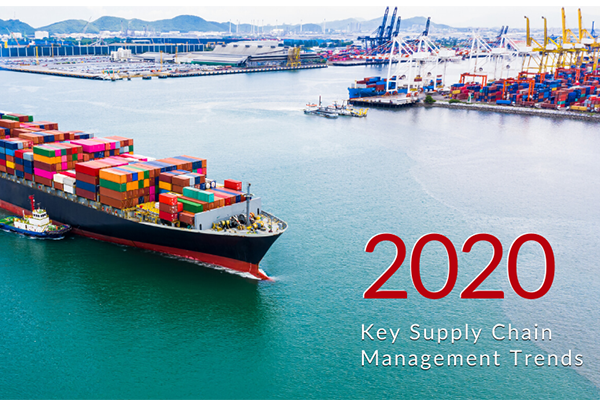Here Are the Top Supply Chain Trends in 2020
Let’s take a closer look at some of the most prominent trends that are set to shake up the supply chain management space this year.
Emergence of robotic process automation
Raise in conflicting demands and their need for responding to and processing purchase orders is a significant administrative overhead for suppliers. Controlling this especially needs a flexible system. This makes supply chain businesses turn to robotic process automation (RPA).
RPA allows you to deploy smart software bots to automate operational processes and eliminate the manual input for purchase orders and other administrative tasks. This, speeds-up labor-intensive activities and helps you successfully meet the supply requirements as demand increases.
Robotic process automation also enables you to define and match required inventory levels in the warehouses against the actual stock. It then initiates purchase orders without relying on human intervention to ensure supply chain functions are smooth going.

Going completely paperless
With globalization, supply chains no longer exist exclusively to any one country or region. This prioritizes implementing new digital technologies to integrate all departments and operations into a unified system.
An efficient digital supply chain ecosystem demolishes silos, creates information transparency across the business and enhances responsiveness. The system does away with manual processes and provides a single view of the organization, ensuring that all transactions done by suppliers, distributors and customers are under diverse control.
This is important for supply chain companies to make more informed decisions for better sustainability of the business.
Embracing artificial intelligence (AI)
It’s clear that technology advancements are showing no signs of slowing down. Supply chain companies, more than ever before, are harnessing its power as a bid on increasing efficiency. The more efficient a company’s order pre-fulfillment processes are, the quicker the customers receive their delivery. AI brings in this effectiveness to supply chain business. This powerful technology simplifies business procedures.
Your supply chain business generates lots of data. Using predictive AI, this data is analyzed to identify the ways for bringing continual improvement in the processes - greater efficiencies, higher quality, reduced waste and fewer delivery delays. Thus, raising overall supply chain performance.
Seamless integration
New components are being added to the businesses as it grows and expands its operations. This requires additional tools to manage them. Advanced ERP systems for supply chain management include technology to support integrating with and working across multiple tools that are capable of simplifying business procedures.
The extensive integration with 3rd-party applications reduces duplication and increases the speed of operations, thereby helping you lessen resource costs while improving overall services.
Cloud system continues to prevail
The supply chain management system on cloud offers flexibility, scalability and expansion of global outreach while doing away with the need to maintain expensive on-premise infrastructure. Further, a complement cloud-based ERP software for supply chain provides a better user experience and greater functionality, ensuring easy access to new features and releases.
Unlike on-premise systems, cloud-based applications are void of limitations to access information away from office premises. Employees are allowed greater visibility into real-time data from any device with an internet connection, making it much easier to conduct business, speed-up turnaround and respond to queries from anywhere.
Agility in supply chain
To function effectively and respond to changes quickly, the supply chain needs to be agile. This marks the radical transition from traditional to modern supply chain management system, which focuses on consistency and reliability in coping with disasters and shifting availability and costs of raw materials.
The new model allows supply chain managers to take advantage of the solution to predict scenarios and identify potential problems. This way, they would be prepared well in advance and plan the best responses to disruptions.
Wrap Up
Adopting advanced supply chain management technologies enables everything to run as smoothly as possible. Staying ahead keeps your business strong, enables you to better handle your global trade issues and supply chain disruptions have minimal effect on your profitability.
When your business has the potential to outperform, then why content with just sustainability? Equip it the tools it needs!
Fill in the form to get the expert guidance on software procurement and implementation.








